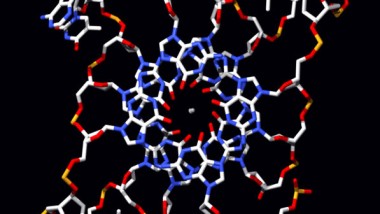Pioneering research by UK scientists shows that a new product – Rember – may slow the progress of mild to moderate Alzheimer’s disease by 81% over a year and could offer hope to millions worldwide. Rember is the first drug ...
Laser Microscalpel to Target Cancers Individually
A group from Texas University, Austin led by Adela Ben-Yakir, has recently patented a new technology that can be used to target one cancer cell at a time. This laser “microscalpel” would make it possible for a surgeon to weed ...
The Link Between Stress and Illness
Do you like being under pressure? Do you enjoy running around like a mouse on a wheel? Think again. Scientists from UCLA have discovered a cellular mechanism linking between stress, aging, and illness. This discovery could potentially help create drugs ...
Insulin Nanopump for Accurate Drug Delivery
The Swiss Company Debiotech has developed a tiny insulin pump to deliver accurate drug quantities over a long time. The pump, 65 millimeters in size, sucks the drug from a container and injects it to the body. The device is ...
Capturing Cancer Cells with Magnets
Scientists from Georgia Tech have invented a new way of battling cancer. Their new technology involves nanoparticles that attach themselves to cancer cells and guide them out of the body. With further development, this invention may help detect ovarian cancer ...
From Allergy to Alzheimer’s Treatment
The San Francisco based biopharmaceutical company Medivation has recently published results of its first pivotal clinical trial of Dimebon in Alzheimer’s disease. Dimebon, a drug formerly approved as an allergy treatment, demonstrated statistically significant improvement over placebo in memory, thinking, ...
The Secret of Embryonic Stem Cells
Researchers from The Hebrew University in Israel, the U.S. NIH, the Affymetrix Corporation, and the Hospital for Sick Children in Toronto, have collaborated in discovering the mechanism in which an embryonic stem (ES) cell is differentiated into a specific cell ...
Spectroscopy Finds Early Tooth Decay
King’s College, London is developing a new technology that may make the dentist’s drill obsolete in as little as five years. A preliminary study shows that decay causing bacteria scatter light differently from healthy tooth matter. Using a form of ...
On Lobotomy and Phantom Limbs
Studied for hundreds of years, the brain is still a mystery in many respects and one part of it is particularly mysterious: the Frontal Lobes. One way to find out more about this large and important area of the brain ...
Radio Sensors to Help Detect Cancer
Professor J.C Chiao and his colleague Dr. Tang from the University of Texas at Arlington are developing a new device that uses radio frequencies to detect cancer. Previously used by the defense industry for weapons detection, these tiny sensors will ...








